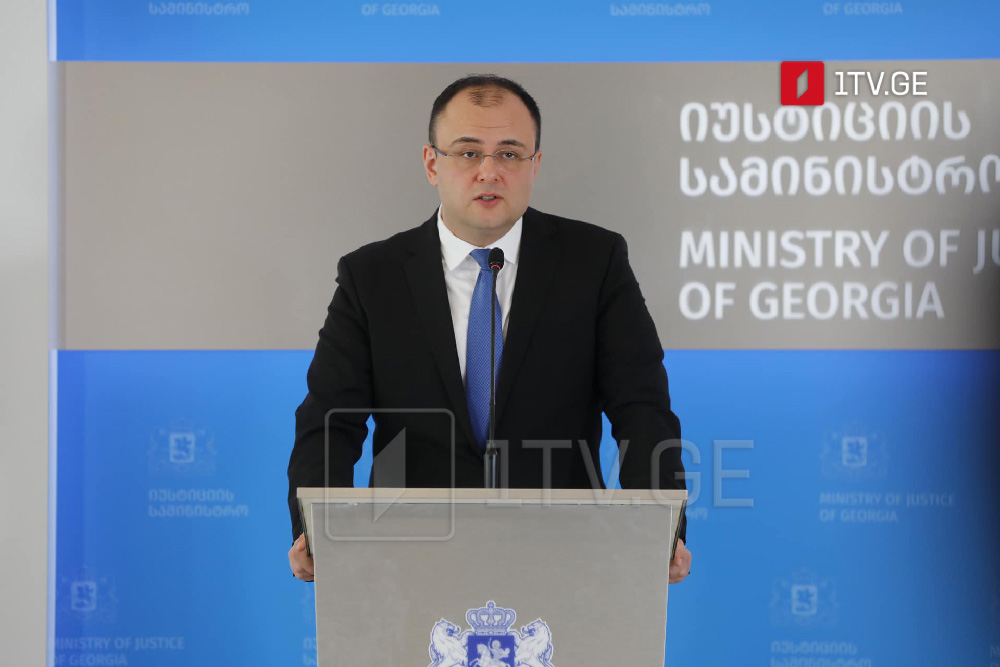ECHR backs Georgian gov't in Saakashvili case, Justice Minister says
“The European Court of Human Rights has upheld the Georgian government’s stance regarding presidential pardon powers and dismissed former President Mikheil Saakashvili’s claims of political persecution,” Georgia’s Minister of Justice, Rati Bregadze, announced during a briefing today.
Bregadze highlighted that the court’s decision affirmed the government’s stance that the president’s right to pardon is not absolute discretion and its abuse may be punishable under criminal law.
The minister also noted that the Strasbourg court rejected another claim by Saakashvili, which alleged political persecution against him, deeming it so unsubstantiated that it was declared inadmissible without a need for review.
“Today’s decision of the Strasbourg court is another clear proof that justice was carried out in Georgia in full compliance with European standards,” Bregadze said, emphasizing that the decision confirmed the fairness of Saakashvili’s trial and conviction.
“Saakashvili, who has been serving a six-year sentence for the severe beating of Valery Gelashvili and the controversial pardoning of individuals convicted in the murder of Sandro Girgvliani, had contested the Georgian court’s decision, claiming judicial bias, insufficient evidence, and political persecution.
However, the European Court dismissed all these allegations, supporting the Georgian government’s legal arguments. The European Court refused Saakashvili’s demands, fully endorsing the government’s evidence and concluding that the investigation, prosecution, and conviction met European Convention standards. The judge’s impartiality is not in doubt, and the evidence against Saakashvili was credible, unmistakable, and well-founded,” Bregadze elaborated.
Bregadze expressed gratitude to the Georgian judicial staff for their resilience and professionalism under significant pressure. He reaffirmed the government’s commitment to the integrity of the judicial process and the rule of law. The Minister of Justice also noted that this was not the first lawsuit filed by Saakashvili, referencing two previous cases brought before the Strasbourg court.
One case was related to Saakashvili’s hunger strike, and it was excluded from proceedings. The second case, filed on April 18, involved Saakashvili requesting the court to exclude his lawsuit, indicating that his health condition was not life-threatening.
“Therefore, when discussing politics, it often revolves around trends. We saw, thanks to the Foreign Agents Registration Act (FARA), that the campaign for Saakashvili’s conditional release was heavily funded.
Everyone remembers how TV programs covered this extensively, starting with ‘FreeMisha’ and continuing. However, as we all saw, this entire campaign, which involved active participation from Georgian politicians, was based on lies. Today’s decision is clear proof of that,” said Rati Bregadze.
In conclusion, Bregadze stated that Saakashvili, who is currently undergoing treatment, will return to a penitentiary institution upon completion of his medical care.
“When the time comes, he will definitely be moved back. A convicted prisoner serves his sentence in a penitentiary facility. Accordingly, he will definitely return to the penitentiary institution he was in or somewhere else,” Bregadze affirmed.
According to the judgment of the European Court of Human Rights, there are “no grounds for doubting the fairness of criminal proceedings against the former Georgian President Mikheil Saakashvili”.
